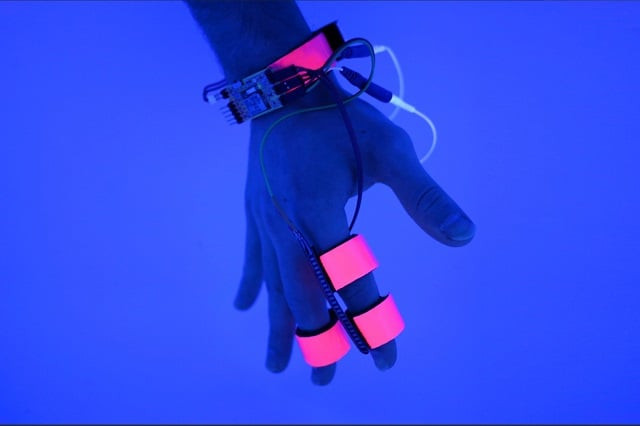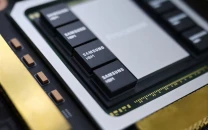MIT scientists are building devices to hack your dreams
Dormio, a glove-like device equipped with sensors plays a pre-recorded audio to interact with the human dream state

PHOTO: MIT Lab
During sleep, we enter a state of Hypnagogia, a semi-lucid sleep state where we begin dreaming before we fall fully unconscious, according to MIT Lab.
To access this state, MIT Dream lab-created Dormio, a glove-like device that is equipped with sensors which plays a pre-recorded audio cue.
The glove-like device is the first interactive interface for sleep, that is able to detect which sleeping state the person is in.
How 'contact tracing' can help contain coronavirus
The project explores ways to augment human creativity by extending, influencing, and capturing dreams in the sleep state between wakefulness and unconsciousness, according to MIT Lab.
“People don’t know that a third of their life is a third where they could change or structure or better themselves,” Adam Horowitz, PhD student at MIT Media Lab’s Fluid Interfaces Group and a Dream Lab researcher, told OneZero.
Apple launches site to show how coronavirus lockdowns affect movement
“Whether you’re talking about memory augmentation or creativity augmentation or improving mood the next day or improving test performance, there are all these things you can do at night that are practically important,” said Horowitz.
The researchers conducted a 50-person experiment, the speaking glove was able to insert a tiger into people’s sleep by having the glove say a prerecorded message that simply said “tiger.”
With the help of this device, researchers are able to influence, extract information from, and extend hypnagogic micro dreams for the first time.
The researchers believe 'if dreams could be controlled, sleep would offer an opportunity for prompting divergent thought in the absence of directed attention and cognitive control.'
Sleep is an underutilized and understudied state of mind vital for memory, learning, and creativity and MIT scientists hope their device will enable more research in the future.



















COMMENTS
Comments are moderated and generally will be posted if they are on-topic and not abusive.
For more information, please see our Comments FAQ